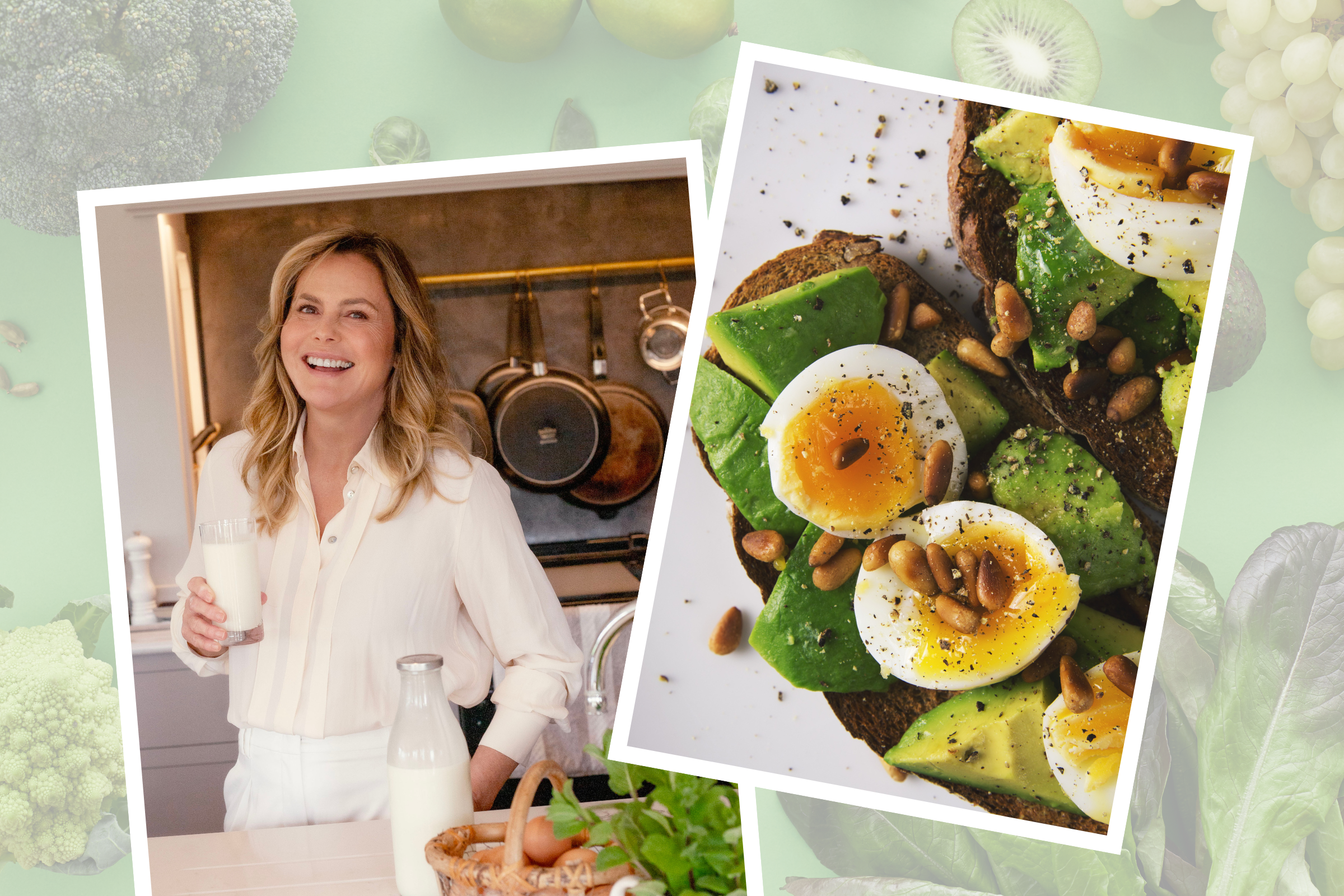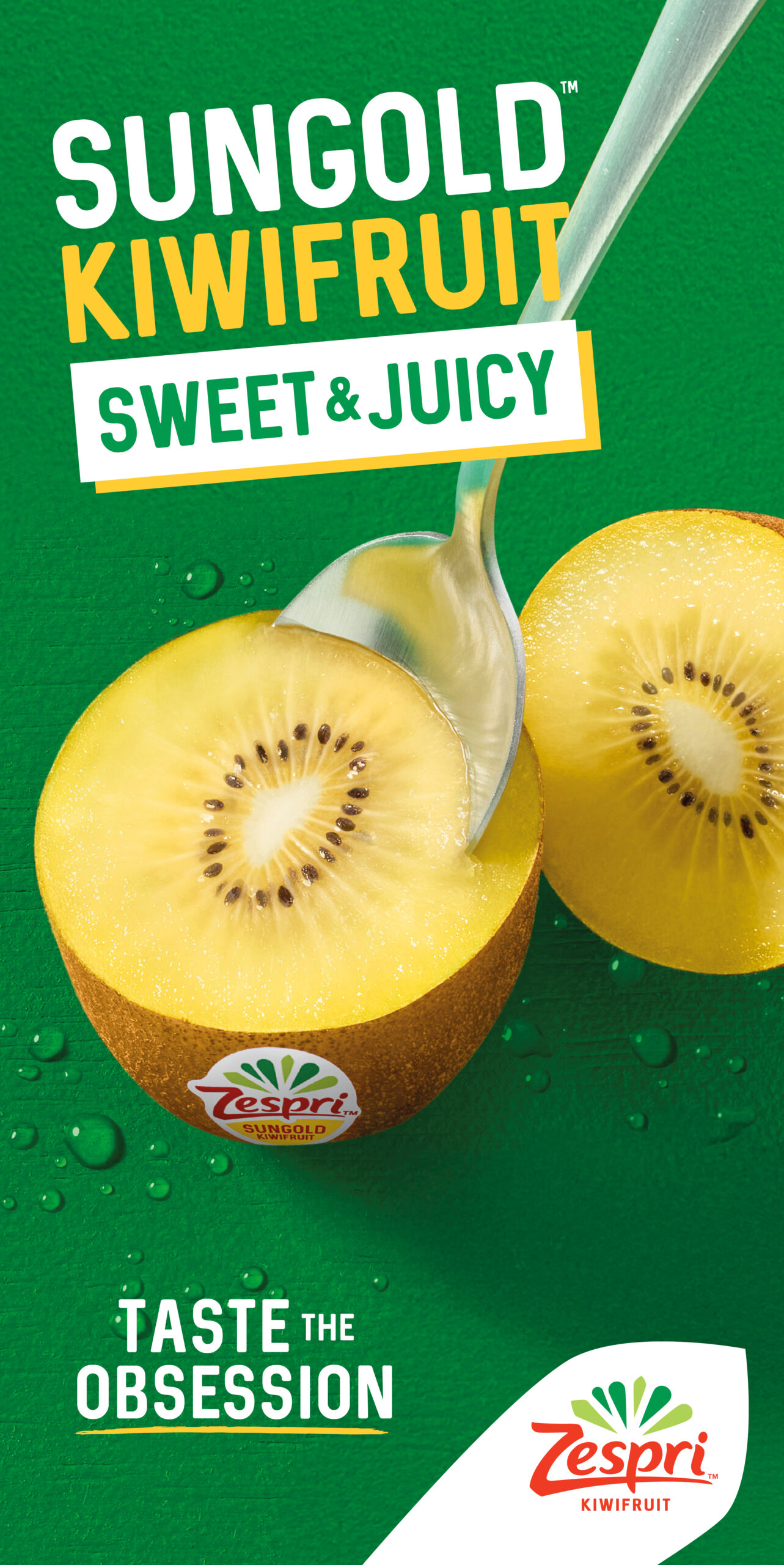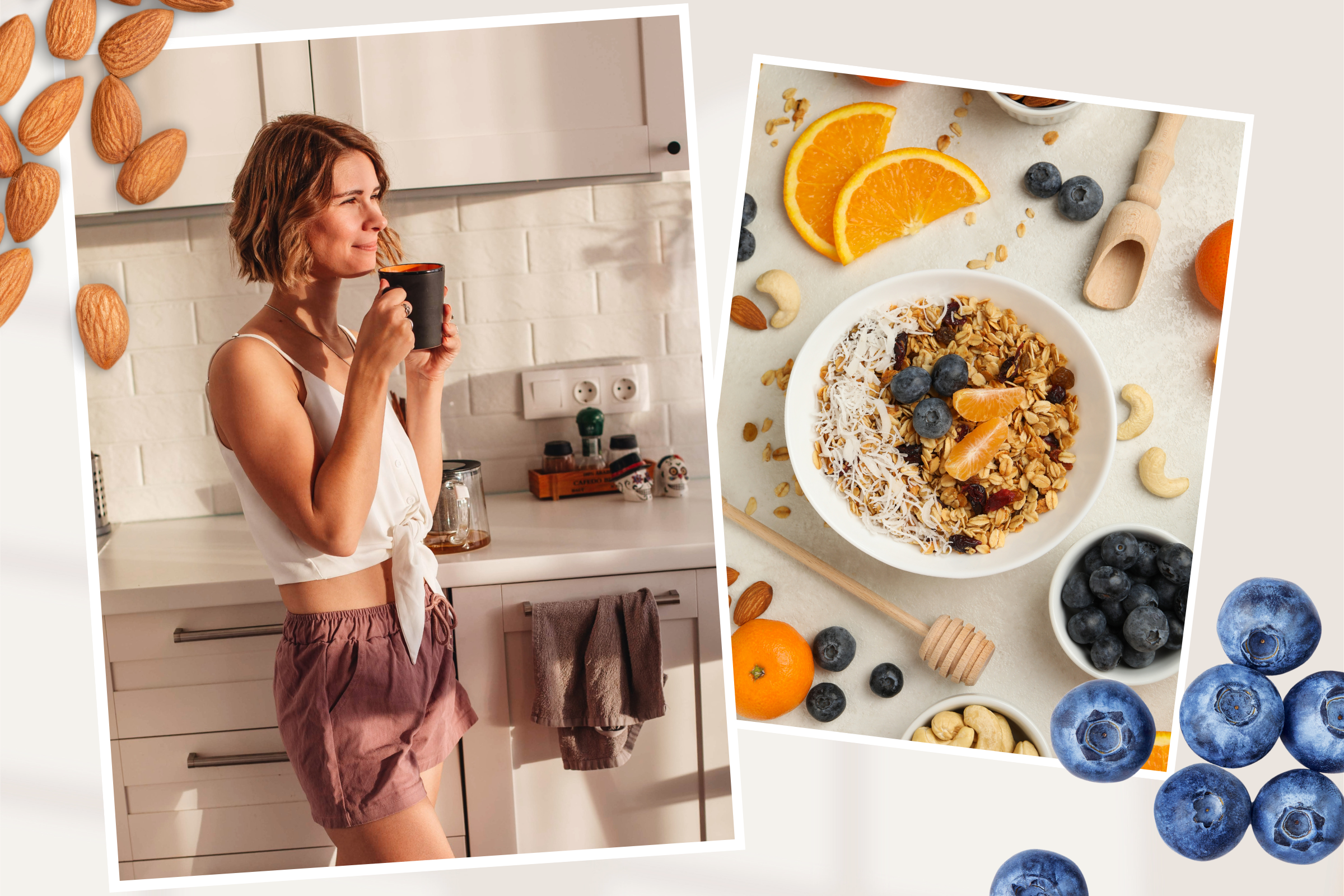Foods to help the menopause

What we choose to eat is one of the most important wellbeing factors we can control in life. The foods we choose during the menopause can make a real difference to how we look and feel.
Foods to help menopause
Eat for your hormones
Phytoestrogens found in certain foods are compounds that bind with estrogen receptor sites in our body, increasing their estrogenic effect. By acting in a similar way to human estrogen, these foods may help keep our hormones a little more balanced. Soya milk and soya flour, linseeds, tofu, tempeh and miso, pumpkin seeds, sesame seeds, sunflower seeds, celery, rhubarb and green beans all contain phytoestrogens. Look for recipes rich in these ingredients to munch your way through the menopause.
Sugar, sugar
Snacking on sugary foods with their inevitable sharp rise and fall in blood glucose levels only leaves us feeling drained, irritable and even more tired. For a mood-stabilising snack, a better option is to choose nuts, seeds or fresh fruit. It’s also important to drink plenty of water to help reduce the need to snack during the day, as you’ll feel fuller for longer.
Helping hot flushes
When it comes to hot flushes and night sweats, it’s best to avoid eating the foods that can trigger these, such as spicy food, alcohol and coffee – especially during the afternoon. Rooibos tea has a great taste if you can’t go without a hot drink and it’s caffeine free. What we eat during the day can have an impact on how we sleep at night too. Protein-rich foods containing tryptophan such as turkey, cottage cheese, oats and legumes (peas and beans) help the body manufacture serotonin, which in turn regulates our appetite, helps us feel upbeat and encourages sounder sleep.
Strong bones
We lose bone density as we age, which can then lead to osteoporosis. It’s important to eat foods rich in vitamin D and calcium, such as oily fish, eggs and dairy produce including milk, cheese and plain live yoghurt. These foods can all play a part in helping prevent calcium loss from our bones. This can also be assisted by eating foods naturally high in magnesium, such as brown rice and green leafy vegetables (or supplements such as Floradix Magnesium Liquid Mineral supplement) and boron, found in almonds, walnuts, chickpeas and broccoli.
Have your cake and eat it
Treat yourself to a slice of Liz’s famous menopause cake. Deliciously good for you, it’s packed with naturally occurring phytoestrogens, the oestrogen-like compounds found in soya, linseeds and some dried fruits.




